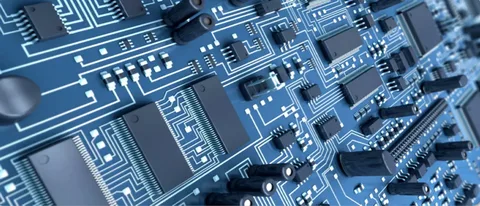Advance Electronic Systems & The Future of Technology Problem Solving
Picture a world in which the environment of your home is managed perfectly, the temperature of your home is preset, a car runs on autopilot, and an employee-less factory works perfectly. Sounds like a fantasy? It is indeed possible due to advanced electronic systems.
But what exactly are advanced electronic systems, and how are they capable of tackling problems from today? Whether you are a business owner who is struggling with productivity, a homeowner who wants to conserve energy, or someone who is simply interested in technology advancements, this blog offers everything you need to understand how advanced electronic systems are changing the way we work and live.
We will go through real world case studies, list out the range of services they provide, and elaborate on why these systems are the most effective modern-day problem solvers there are.
Let’s begin.
What Are Electronic Systems?
Let’s be clear before we get into complex topics. Electronic systems are systems made of components that are interconnected and are designed to accomplish particular jobs. Think of these as muscle groups in a body where every single part has a separate function, individual:
• Sensors – Collect information (temperature, motion).
• Processors – Analyze the information and make choices.
• Actuators – Execute functions (turn on fans, unlock doors).
Modules geared toward communication enable various devices to interface with one another. As an illustration, consider your home security setup. There are sensors that observe movement, the processor determines whether it is a threat, and the actuator triggers the alarm. Simple, isn’t it? What Is the Definition of Advanced Electronics? Now let’s take it a notch up. Advanced electronic systems are like the superheroes of the tech. “Superheroes” use technologies of Artificial Intelligence (AI), machine learning, IoT, and big data analytics to solve difficult challenges. These systems operate autonomously. They do not only work according to set guidelines. They learn, adapt, and make choices independently. Compared to more conventional systems, these systems are smarter, faster, and more efficient. They are transforming every industry in their path. Problems In the Real World That Advanced Electronic Systems Have Solved Let’s be honest. There is no shortage of challenges in life. Advanced electronic systems are punching above their weight and solving these problems.
1. High Energy Costs Solution:
Smart Grids and Energy Management Systems Are energy bills consuming most of your income? Smart grids and home energy management systems are advanced electronic systems that can reduce excessive energy bills.
Smart Grids: Systems that promote electrical distribution efficiency while monitoring the consumption levels, identifying faults, and incorporating renewable energies such as solar power and wind energy.
Home Energy Management: Smart appliances and thermostats adjust and recalibrate their setting based on specific patterns and behaviors in order to conserve energy. For example, a smart thermostat could set a lower temperature during the times you are away from home, ensuring comfort while eliminating unnecessary expenses.
2. Menial Manufacturing Tasks
The phases in which products are manufactured can take a great deal of time, money, and have a high propensity for mistakes. Advanced electronic systems enhance the accuracy of production by automating primary tasks and enhancing the efficiency of the workflow.
Robotics: Robots fitted with arms and artificial intelligence are capable of repetitive work with a high degree of accuracy as well as output, which leads to a decrease in mistakes.
Predictive Maintenance: Sensors tracking the performance levels of the equipment analyze how well the devices are functioning, and prolong the preset time that maintenance needs to be performed for that device, which avoids expensive breakdowns and downtime.
3. Congested Roads
Solution: Advanced Transportation Systems
Do you find yourself in traffic often? Smart advanced electronic systems are making travel easier and less congested.
Traffic Management: Traffic queues are monitored by sensors and cameras, AI adjusts traffic light timings and sequences to alleviate traffic conditions.
Autonomous Vehicles: Self-driving vehicles can cruise on roads using advanced electronics to avert collisions and steer, leading to fewer accidents and better traffic conditions.
4. Accessibility of Health Services
Remedy: Remote Health Monitoring and Wearable Technology
Areas far from cities face challenges when seeking healthcare services. Advanced electronic systems are bridging the existing gaps.
Wearable Technology: Smartwatches and fitness bands keep track of crucial health indicators such as pulse and blood pressure, thus availing important information to users as well as health care professionals.
Remote Patient Monitoring: Patients with chronic ailments can manage their health from their homes using connected devices which reduces hospital visits.
5. Lack of Safety and Security at Homes
Remedy: Smart Security Systems
Concerned about break-ins or other emergencies? With the advent of technology, you can make Systems designed to help provide you with security disabled in your alarming requirements.
Smart Surveillance Cameras: These gadgets utilize motion sensors and facial recognition to determine alarms and send contact alerts to your cell phone.
Digital Alarm Systems: Sensors that initiate alarming beacons are provided by cartoon children. System sensors analyze surrounding neighborhoods and sequences, prescribed thresholded anomalies uncover suspicious surroundings, which trigger the alarms, lock doors, or inform guards.
What Services Services Advanced Electronic Systems Provide?
Problems are not the only goal of advanced electronic systems, – they strive to create Positive Impact and thus here are a non-exhaustive set of services they provide.
1. Gathering and Processing Data
This is the set of sophisticated devices with tremendous capabilities as they combine the functions of sensors, cameras, and other devices. These types of devices and machines utilize advanced programs to analyze data identifying patterns, predicting metrics and making decisions.
2. Automation
Advanced electronic systems simplify tedious processes such as switching off lights and assembling products. These systems save time and minimize error as well.
3. Real-Time Monitoring
These advanced systems provide insights in real time. For example, they monitor machines at a factory and also the heart rate of a person. This allows for timely interventions when there is a problem.
4. Predictive Maintenance
Modern advanced electronic systems are capable of and can predict if machinery is about to fail by analyzing the data collected through sensors, which allows them to proactively schedule maintenance.
5. Enhanced Security
Advanced electronic systems improve security by tracking access, identifying potential risks, and taking action during a threat to contain the emergency.
6. Energy Optimization
The system’s ability to monitor energy usage while simultaneously altering its own settings to minimize energy waste saves money and lowers a company’s carbon footprint.
How are Advanced Electronic Systems Shaping the Future?
These systems go beyond providing solutions to problems that are at hand right now, they are actively constructing the future. Here’s how:
1. Enhanced Cities
Smart city concepts heavily rely on advanced electronic systems. These systems are capable of controlling traffic, checking air pollution levels, regulating public transport and waste management systems. These systems aid in sustaining and enhancing the quality of life in cities.
2. Personalized Healthcare
Advanced electronic systems facilitate creating individualized treatment plans through the use of patient data. Remote patient monitoring (RPM) and wearable devices enable self-care, thus minimizing the number of physical visits to the healthcare facilities.
3. Sustainable Energy
The comprehensive utilization of renewable energy sources along with the fossil fuel systems aid in mitigating the energy burden. Energy consumption and conservation, as well as the integration of renewable sources, is handled by advanced electronic systems.
4. Enhanced Connectivity
The Internet of Things (IoT) is enabling unprecedented levels of interconnectivity across different devices. Sophisticated electronic devices (smart home appliances, industrial equipment, etc ) communicate and collaborate through shared data storage enabled by advanced electronic systems.
Difficulties and Factors
Advanced electronic systems are crucial for the development of a country, but they come with their own set of challenges. These include:
Cyber Security Threats: There are increasing risks associated with cyberattacks over advanced persistent threats (APTs) targeting IoT frameworks. Moreover, sensitive data is highly prone to breach in case of weak system integration and absence of robust cybersecurity.
Expensive Configuration: Advanced electronic systems tend to be costly, especially for budding industries. Nonetheless, the value they add trump the disadvantages over time.
Difficult: The design, implementation procedures, and ongoing maintenance is expensive and timely. To achieve maximum potential of these systems, proficient personnel are important.
Overarching Acceptance on the Forthcoming Frontier
The development of advanced electronic systems goes beyond being simply a trend. They are France’s answer to pressing global issues. These systems are modifying entire industries and improving the quality of life by reducing energy costs, improving healthcare, aiding security, and streamlining manufacturing processes.
These problems can be traced back in history and have proper solutions. Understanding what advanced electronic systems are and being exposed to real-world examples depicting services offered explores the systems innate ability to create opportunities and solve problems.
Embrace the possibilities and discover how these systems can transform your world, whether you are a business owner looking to optimize operations, a homeowner seeking smarter solutions, or even just a technologically curious individual.




Post Comment